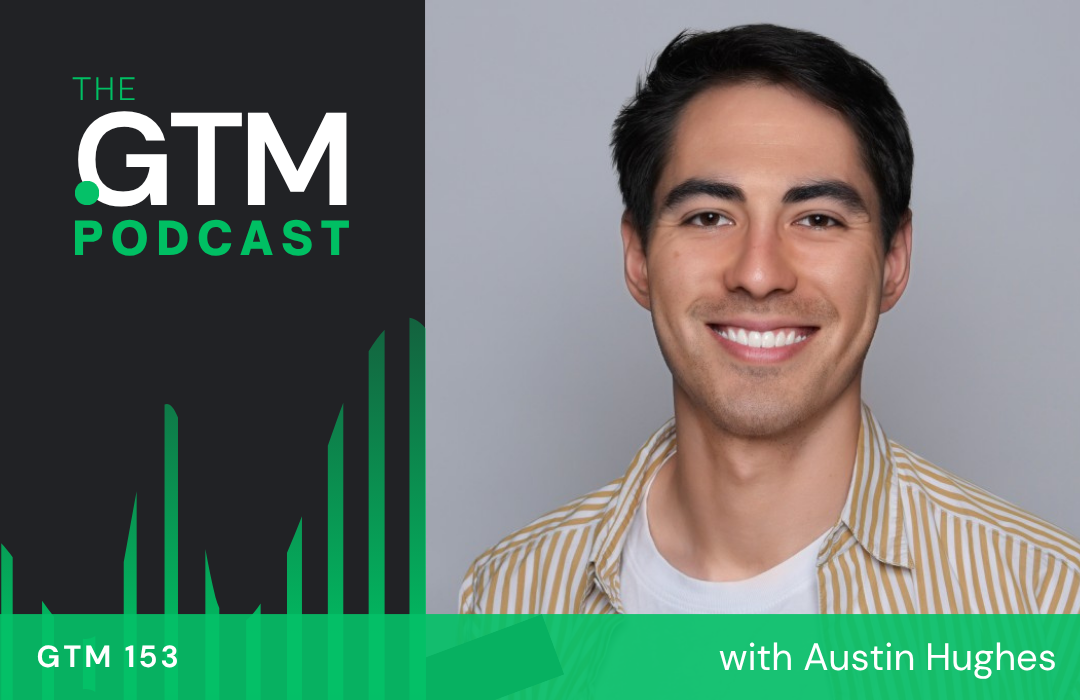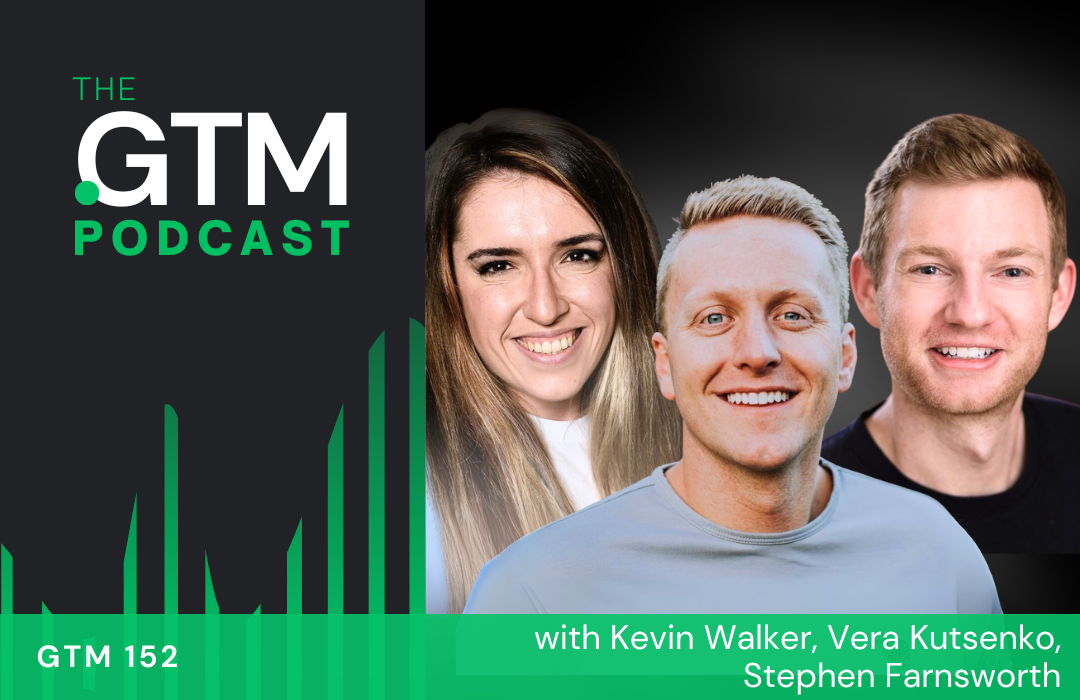Content warning: This article contains descriptions and images of gun violence, as well as discussion of trauma.
After the first shot, I thought that someone had popped a bottle of champagne.
After 10 to 20 more shots, reality set in, and so did the chaos.
People running in every direction in the crowded brewery. Time standing still, then unfreezing. All the “good” places to hide already taken.
I scrambled into the kitchen with dozens of strangers. At the slightest break in the melee, I sprinted to the back door (not before slipping and going sprawling on the brewery’s nicely tiled kitchen floor), and bolted to the nearest hotel to find safe haven.
You’re probably thinking, “What does this have to do with sales?”
At first glance, nothing.
At further glance, everything.
Jump to:
- My life as an AE: Before the shooting
- The night everything changed
- My life as an AE: After the shooting
- How surviving a mass shooting changed the way I sell
- How you can apply my learnings to your role
My life as an AE: Before the shooting
At the time leading up to this, I was your typical AE.
My company had a clear value proposition I supported. I had a calendar full of meetings that had been generated by our BDR team and my life was good.
I was closing deals and making money. I had structured a very systematized sales journey and I knew exactly how to get a prospect from stage 1 to stage closed. My numbers were solid. I could combat objections in my sleep.
In short, I felt like I was in total control. I knew how to push the buyer’s buttons and how to manipulate the conversation in my favor. If I took 40 new calls in a month, I’d close 4+ deals and hit my quota. It was like clockwork.
A real sales killer…or so I thought.
The night everything changed
June 2021. I had just gotten back to the States after 4 months of travel. Some of my best friends from childhood were throwing a Juneteenth celebration in Granger, Indiana and there was no way I was missing it.
Then, in the early morning of June 20, the first shots rang out.
Followed by 80 more.
In all, the shooter fired 80-100 rounds of high-powered ammunition into the crowd, partially outside and inside at party-goers. Five people were shot. A friend I’d come with was struck multiple times. He lay wounded on the ground outside, out of reach, before succumbing to his injuries.

The brewery’s lobby after the shooting. Photo by Brian Hicks (the guy who wrote this article).
I had zero control. Fear ripped me to my core and the pain and sorrow I felt for my friend’s family was overwhelming. It was surreal. Quite the culture shock.
Editor’s note: News coverage of the event can be read here.
Life as an AE: After the shooting
Imagine that you were floating in the middle of the ocean, no land in sight. You know that there are predators under you, but you can’t find the “give a crap” button so you just float.
That is the best way to describe my mental condition immediately following the shooting.
I had zero motivation.
I saw the calls on my calendar but I didn’t care.
I knew that I needed to work, but I couldn’t find it in the bag of tips and tricks that I had acquired up to this point in my life.
The power of a good leader
I’m so thankful that one of our co-founders, Michael Maximoff, had built a relationship with me where I felt comfortable to share this experience with him. I’m also grateful that he had seen me in action and he knew that something was amiss.
We sat down and made a plan to get me back on my feet. I don’t really know how, but we did it.
The help I received from my leaders and team was key to my recovery.
- I was going to take a month (longer if needed) off of work
- My company vowed to support me with the necessary time off
- They continued compensation as if I hadn’t left
- And offered to reimburse me for all therapy costs
This level of support is what encouraged me to take the steps I needed.
I embarked on 2 different types of therapy (the most impactful for me was EMDR for anyone wondering), 3 times a week for a full month. The progress was night and day.
Here is your notice that if you or a team member has been going through something, please reach out to someone on your team that you can trust.
Hell, reach out to me if you need to. I don’t know what I can do for you, but I will help you figure it out. DM me on LinkedIn and I will get back to you ASAP.
How surviving a mass shooting changed the way I sell
After going through all of this, I noticed some subtle changes happening in my mindset. These changes quickly evolved into rules of engagement for me:
- I stopped giving a crap about hitting a sales quota, and started caring a lot more about opening my eyes in the morning.
- I stopped looking at the companies that I was speaking with, and I started looking at the people.
- I started caring way more about the individual’s story than the company’s mission, and I started making it a goal of mine to approach my calls with the mindset that I am going to learn as much as I can about the person that I am talking with. The value of doing something meaningful superseded the value of closing a deal.
There’s a Confucius quote I’d never quite understood before this incident. The quote is, “We have two lives. The second begins when we realize we only have one.”
For the first time, it made sense to me. And I decided that I’d never let another person (prospect) come across my path and pigeon-hole me into going straight to my pitch.
The questions I ask now are totally different
I started asking questions that you won’t find in the latest and greatest “How to close more deals” article.
Questions like:
- How do you like being [title] at [your company]?
- What do you love most about working at [your company]?
- I noticed that you found us on G2. That means that you are probably evaluating several other solutions like ours. Let me ask you this, do you feel that your time has been well spent speaking with all of these companies? Why or why not?
- If I can ensure that you walk away from this discussion feeling positively about our interaction, what would that look like for you?
- How did you come to find [your company] and why are you there?
When you start asking these types of questions, your “commission breath” starts to disappear.
I noticed that these types of questions were disrupters for most of the people that I was speaking with.
How these questions changed my sales
- Opened up a very organic dialogue between us, which led to better discovery discussions.
- Differentiated me from the other 15 reps the prospects have spoken with, because none of the other reps were asking these questions. They might not remember everyone that they spoke with but they will never forget speaking with Brian.
- Brought greater value to my job. I learned that Zig Ziglar was right… “People don’t care how much you know until they know how much you care.” It started to show, and it stopped feeling like work.
No longer are my sales conversations a roadmap for me to hit a quota. (I am currently breathing into my cupped hand and smelling it to see if my “commission breath” lingers from the days of old.)
These conversations are an opportunity to connect with another human being that is on their own unique path and has had their own unique experiences.
Because at the end of the day, people do business with people, not companies — just like people work for people, not companies.
This even gave me a newfound appreciation for the investment of resources and time that it takes for our team to drive this meeting to my calendar (shoutout to the BDRs)… but that is a whole different article.
How you can apply these learnings to your role
This is the absolute biggest game-changer for me: If you stop trying to control the sales journey and instead start guide your prospects, your conversations will be more meaningful, and your prospects will open up more to help you identify their true needs, fears, uncertainties, and doubts.
Sound like fluff? My numbers back it up. My average sale has gone up by 18% and my conversion has improved from around 9% to over 16%, currently.
How? Here’s a few more stats:
I watched my sales cycle lengthen from 30-45 days to around 45-60 days as I kept the lines of communication open with people, respecting my prospects’ buying journeys instead of trying to force my pitch down their throat.
After the shooting and my recovery, my average call time increased from 24.5 minutes to 37 minutes. And, critically, I’m not doing the talking. Instead of talking 55% of the time I’m now talking around 40% of the time.
It just goes to show: People buy because you understand them, not because they understand you.
And here’s something even more important. When you start thinking about prospects as people rather than a means to an end, your conversation automatically gets more organic. It becomes enjoyable. You’ll find yourself thinking of that prospect when you see something that reminds you of your conversation. It opens up a chamber that you didn’t even know existed.
(Then when that lightbulb goes off, copy the link to said article and send it to your prospect with the subject line “{FirstName}- I read this and thought of you.”)
We spend so much of our time working. Why shouldn’t we love it? Why shouldn’t it be meaningful? If you fight the urge to pitch and spend a little more time focused on the people in front of you, it is going to work wonders for your discovery process, and your relationship with your work.
If you fight the urge to pitch and spend a little more time focused on the people in front of you, it is going to work wonders for your discovery process, and your relationship with your work.
And you might just start looking forward to Monday instead of counting the days down until Friday.
I can’t replicate my experience for all of you, and I wouldn’t want to. But if this has resonated with you — especially if you’ve just been going through the motions — then try putting some of these ideas into practice and see what happens.
It is fun to win business. But it’s even more fun to win business while connecting with people and feeling like you are part of something more…that you, in your own way, are leaving a positive impact on people and in turn the world.
Happy selling.
 Edited by Kendra Fortmeyer @ Sales Hacker 2023
Edited by Kendra Fortmeyer @ Sales Hacker 2023







